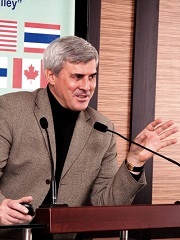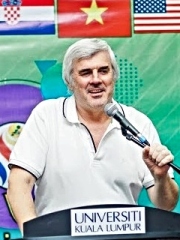 |
The
most important
is to find
the
most important
difference
that makes the difference
~
Vadim
Kotelnikov |
|
Managerial thinking involves aligning people and resources within and across departments to achieve organizational goals. It emphasizes strategizing, structure, coordination, and efficiency across teams. Managerial thinking prioritizes process, hierarchy, and strategic oversight.
|
|
 |
If
you stop
learning,
you stop creating history and
become history.
~
Vadim
Kotelnikov |
|
Expand your intellectual horizon. Integrate diverse thinking styles to uncover hidden connections, discover synergy opportunities, and improve outcomes. This approach is critical in managerial leadership for sustaining long-term performance and adapting to complex environments.
|
|
| |
|
The Five Minds of a Manager
Managers require five distinct mindsets
according to
J.Gosling and H.Mintzberg, the authors of The Five Minds of a Manager.
|
|
|
|
|
|
① Reflective Mindset
Stepping back and reflecting on experiences allow mistakes to be identified.
Reflection may also lead to seeing things in a new ways, e.g., a product as a
service or
customers as partners (or vice versa). ② Analytical Mindset
Go beyond crunching the numbers. When a
decision must be made, analyze the analysis of others to determine the
biases they may have had and the data and
assumptions used. ③ Worldly Mindset
People tend to think of
the world as an
increasingly homogenous place but it is really a collection of worlds within
worlds, with definite boundaries and edges. Just because a company sells
products globally it may not take into account how those products are perceived
and used in
different
cultures. Managers with a worldly mindset spend time in places
where products are made,
customers served, and environment threatened. ④ Collaborative Mindset
Managing collaboratively means managing not people
but
relationships. Good managers
listen
more than they
talk and
ask questions more than give orders. They also distribute management
functions so that responsibility goes to whoever shows initiative.
|
|
| |
⑤ Action Mindset We are told that we must change or else. But while this is an age of change, not everything is changing (which we tend not to notice). Managers with action mindsets focus organizational energy on changing what needs to be changed, while carefully maintaining those that don't. |
|
Management
Creative Management
AImpowerment
AI MAGic |
|
|
|